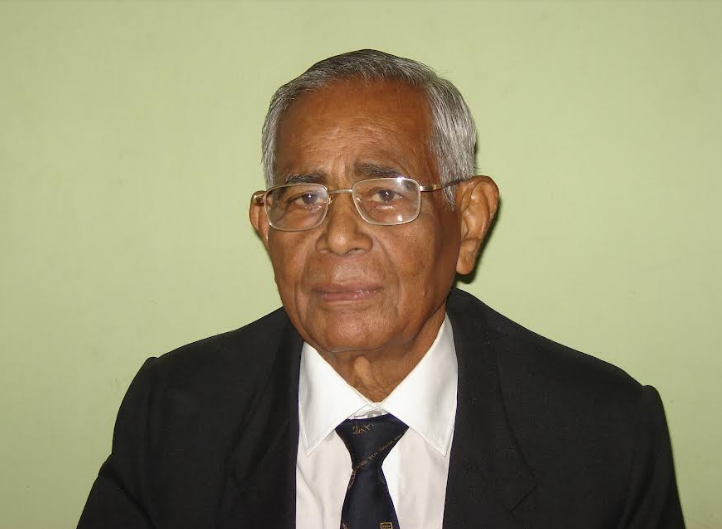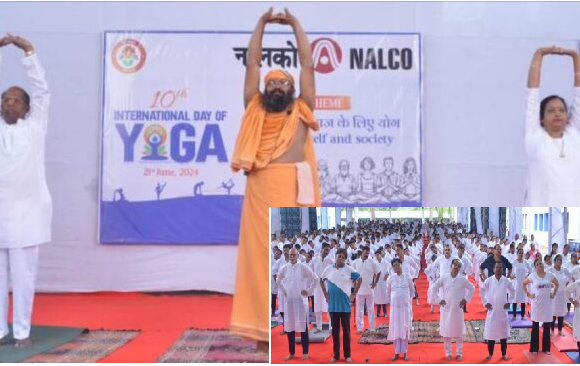Corporate Social Responsibility is must for Mining Industries

Prof. Dr. P. K. Jena
The Corporate Social Responsibility (CSR) is a means by which companies can frame their attitudes and strategies towards, and relationships with stakeholders, be they investors, employees, communities, within a popular and acceptable concept. It is the manifestation of a move towards greater sustainability in the industry i.e. the practical implementation of the goals of sustainability. In the industry particularly in mining sector, progress within the three dimensions of sustainable development (economic, environmental and social) can be achieved through economic development, investment of generated revenues to ensure the future development and long-term livelihood of the communities. In mining operation environmental protection, minimizing environmental impact of natural resource exploitation and land rehabilitation to allow successive use and social cohesion, reducing social and cultural disruption to communities, maintenance of stakeholder dialogue and transparency of operation should be given due priority. Thus, Corporate Social Responsibility (CSR) is very important for the sustainability and smooth functioning of mining industries.
There are a number of business reasons aside from external pressure for mining companies, to invest in communities through their CSR programmes as given below:
- Obtaining a competitive advantage – community investment programmes are used to aid the awarding of concessions as companies appearing to be socially responsible, are often favoured in this process.
- Receiving and maintaining a stable working environment – CSR initiatives are occasionally initiated as a means of ‘buying’ the local communities’ agreement to allow a company to operate smoothly.
- Managing external perceptions and maintaining a good reputation – CSR initiatives are used for public relation purposes.
- Keeping employees happy – CSR initiatives can often make staff feel more positive about the company, and this helps to increase motivation and efficiency. This also helps to retain and recruit better staff.
Sustainable development in CSR programme requires net and equitable benefits, and building of social capacity for affected communities. This should continue throughout mining and beyond the closure of the mine.
Community involvement initiatives that mining companies may employ include:
- Infrastructure improvements – for example, building access roads, community buildings, schools etc.
- Community Health Initiatives – offering proper and timely health services to employees and their families along with building and equipping hospitals and health centres for communities.
- Community foundations – a fund is generated by the company and is used for social investment purposes and these can also attract interest from external donors.
- Supporting small local businesses – preferential procurement policies for local suppliers.
- Sustainable livelihood projects – the purpose of these is to reduce communities’ economic dependence on the mine, and develop alternative and sustainable employment opportunities for stakeholder communities.
- Micro-credit finance schemes – these loans can be used to launch new enterprises, create jobs, and help economies to flourish. With access to credit families can invest according to their own priorities; for example school fees, health care, nutrition, or housing, and rather than focusing on day-to-day survival, people can plan for the future. Micro-credit schemes aimed at women, can offer opportunities to most disadvantaged groups in communities.
A successful and sustainable corporate community involvement strategies are as follows:
- Assess and address the basic rights and needs of the community.
- Recompense any material losses.
- Allow all members of community to participate effectively in decision making processes.
- Be fair and equitable in distribution of mining benefits and decisions made.
- Contribute to a net benefit for social and economic capacity.
- Contribute to long-term sustainable development.
- Ensure that mining revenues are distributed locally and equitably and that there is transparency in this process.
- Do not give rise to dependency.
The reasons for corporate environmental and social reporting are rooted in Agenda 21, adopted by the United Nations Conference on Environment and Development at Rio de Janeiro in 1992.
Some typical CSR Efforts and Effects in some industries:
- Colombia allocates a certain percentage of benefits from hydroelectric plants to the development of rehabilitated area.
- In Brazil, there is a principle of reinvesting a percentage of royalties from hydropower to the resettlement areas.
- Canada adopted a strategy of partnering with local communities for equity sharing.
- In China, there are important agencies, which have the responsibility of managing reservoir development funds and initiating development interventions to benefit the resettlers.
- There are, appreciably, several cases of companies in India involved in diverse issues such as health-care, education, rural development, sanitation, micro-credit and women empowerment, arts, heritage, culture, and conservation of wildlife and nature, etc.
It may be mentioned that, poor attention to community development and engagement with landowners caused the closing down of a large copper mine in Papua New Guinea. The Phulbari coal mine project in Bangaladesh was abandoned in 2006 because of community agitations for alternative livelihoods. Therefore, there is a need to increase the understanding and active participation of business in equitable social development highlighting it as an integral part of good business practice.
The mining companies should try to place an equal emphasis on concerns related to environment, economy and community. The representatives of companies, government officials, and community members should be involved in resolving problems, which arise because of mining. Most of the time, local communities, governments and mining companies are uncertain about their respective roles and responsibilities in the development of mining, and they are unable to act or participate effectively in decisions related to mining activities.
Some of the core issues, which the company should deal with, are:
(i) Rehabilitation and Compensation issues should be dealt with equitably. The company should provide all infrastructure facilities to the rehabilitation colony. They should take into consideration the plight of landless households.
(ii) Proper care of environmental quality is essential. Concerns about air pollution, water pollution and degradation of lands and forests should be given proper emphasis.
(iii) The company should invest in improving human and physical capital of the region. Education, basic amenities, health care, training opportunities should be provided not only to the employees families but also for the community in the region as a whole.
(iv) Issues of post-mine closure like unemployment, income potential, migration, environmental clean up should be discussed much in advance and necessary action should be taken.
(v) Effective administration, rule enforcement and accountability should be keywords in the process of rehabilitation as well as functioning of the mines.
In order to make mining of minerals sustainable, the implementation of Corporate Social Responsibility (CSR) programme is very important for mine owners, community and the government. In planning and implementing the CSR programmes, all the stakeholders should be involved from the very beginning and there should be transparency at every stage. The mine owners should frame attractive CSR programmes for effective utilization of the resources as well as to protect the environment and the interest of the stakeholders. This will go a long way in helping smooth functioning of mine and the country to effect rapid socio economic developments.
(The writer is Ex-Director General, CSIR. He is at present the Chairman of Institute of Advance Technology & Environmental Studies (IATES). He can be reached at prof.pkjena_iates@yahoo.com)







